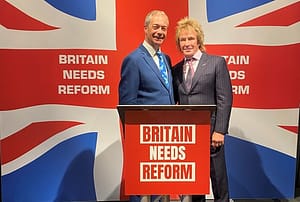Katie Small, board director at insurance broker R K Harrison, gives her diagnosis of the Fear of Missing Out (FoMo) syndrome
FoMo has been one of the buzz acronyms of 2013. Apparently, because we are constantly bombarded by tweets, status updates and sepia-filtered pictures of our friends’ breakfasts, we are driving ourselves to distraction with FoMo – Fear of Missing Out.
Being constantly presented with the curated ‘best ofs’ of people’s lives has the same emotional impact that advertising, marketing and selling has always strived to create – building aspirations and hinting at the flipside, the fear of what life might be like if you miss out on the latest car/shoes/holiday. Quite often these feelings can’t be quantified in a meaningful way and it is just the Fear of Missing Out that drives our desire for whatever the ad or sales pitch is promoting.
Insurance is also built on a breed of fear, but a measured and defined one that must be carefully distinguished from this marketing and sales-led FoMo. Legally required insurance aside, people calculate their potential financial loss and the likelihood of an event happening, and decide whether to buy insurance based on that. While alien abduction insurance is available if you want it (seriously), most people’s cost/benefit analysis will rule that this fear is not great enough to pay for insurance that would deal with the consequences.
Problems have arisen in the insurance industry when this measured analysis of fear is replaced with a vaguer marketing and sales-led FoMo. PPI mis-selling happened on the back of the big fears – that you’d lose your job or become seriously ill, leaving your loved ones to deal with your debts. These policies were hugely profitable, so they were sold aggressively and indiscriminately, and structured to minimise the chance of a payout.
As a result, by January this year, over £8bn had been paid out in PPI compensation. Banks and building societies have set aside £13bn to cover the costs of compensation, and a whole new sub-section of the legal industry has built up around how to claim. One company sends out over 800,000 PPI texts a day on behalf of a client. FoMo again – you really don’t want to miss out on the PPI compensation that’s owed you.
Credit card and identity theft protection products from insurer CPP is the latest mis-selling scandal. For £30 a year, its card protection product covered losses if a card was lost or stolen. The only catch was that customers were already covered by their banks, and generally aren’t liable for unauthorised payments on lost or stolen cards anyway. For £80 a year, you could buy CPP’s identity theft insurance. The FSA, when it fined CPP a few years ago, found that when selling this product, the risks and consequences of identity theft were vastly exaggerated. The fear of what would happen without the insurance, the FoMo, was inflated.
Thirteen banks and credit card firms have agreed to provide £1.3bn towards a new compensation scheme. Expect the texts any day soon…
What’s clear is that FoMo means we end up buying stuff we don’t need, whether it’s a gym membership, a new pair of shoes or inappropriate insurance coverage. This is prevalent at the high end of the market too.
So the moral is to look in detail at anything you buy, particularly when it is something complicated like insurance. Working with a broker is one way of reducing the FoMo factor in your decision-making, as they are legally obliged to work in your interests and should know any policy inside out before they recommend it to you. But if you do purchase your insurance solo, then it’s important to look exactly at what you’re buying and not just at what the marketing or sales promises.
Katie Small, Head of Private Wealth for R K Harrison Insurance Services
- Follow us @LondonlovesBiz
- Try our free newsletter
You need to read…
Is it better to pay the mafia than an insurance company?
Two in five London businesses in better elf this Christmas
Oenophiles and insurance: Protecting your wine investment






Leave a Comment